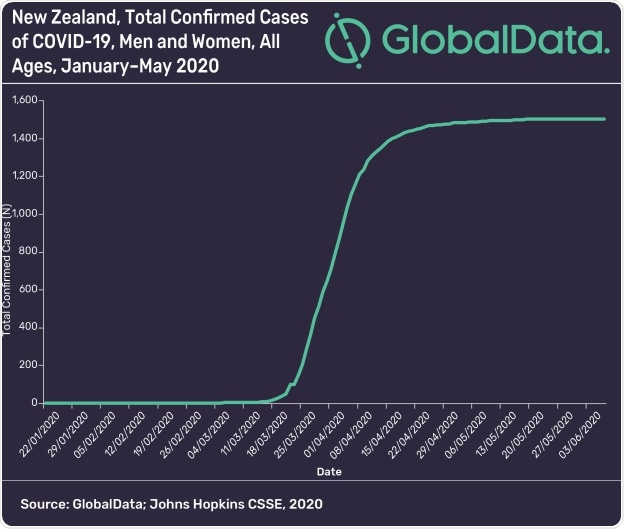After a little over 100 days since the first confirmed case of COVID-19 reported on 28 February 2020, New Zealand has lifted almost all restrictions after reporting no active cases in the country. New Zealand’s aggressive approach to curb the spread of the virus has proven to be a very effective strategy as the country has had no new COVID-19 cases in more than two weeks, says GlobalData, a leading data and analytics company.

New Zealand achieved this feat by going into the highest level of lockdown on 25 March 2020, which allowed only limited exercise and essential work outside of the home. It engaged in one of the highest levels of testing in the world, allowing cases to be rapidly identified and contained. It took advantage of its isolation as an island nation with a population of less than five million people and one of the lowest population densities in the world. This allowed social isolation measures to be undertaken swiftly.”
Topias Lemetyinen, MPH, Managing Epidemiologist at GlobalData
Despite lifting almost all restrictions, New Zealand intends to retain a ban on foreign travel and advise that citizens continue to wear masks in public. The country has weathered the first wave of the pandemic well, but a reintroduction of the virus into the island nation could cause an immediate surge due to the potential limited immunity in the population.
As COVID-19 continues to spread globally, New Zealand has set an example for the rest of the world on how this crisis should have been handled. In contrast, the COVID-19 pandemic was first identified in the US at least one month earlier than in New Zealand, and in many states the number of new cases continues to rise with little indication of slowing.”
Topias Lemetyinen